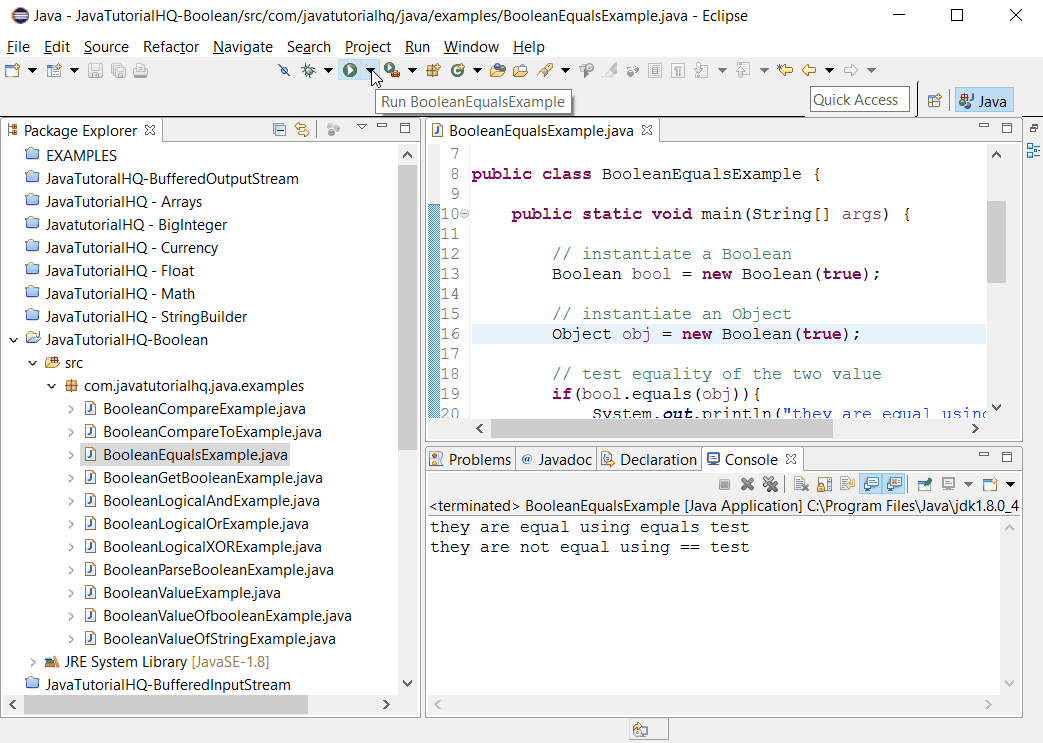java.lang.Boolean equals(Object obj)
Description
Important Notes:
- overrides equals in class Object
Method Syntax
public boolean equals(Object obj)
Method Argument
| Data Type | Parameter | Description |
|---|---|---|
| Object | obj | the object to compare with. |
Method Returns
The equals(Object obj) method of Boolean class returns true if and only if the argument is not null and is a Boolean object that represents the same boolean value as this object.
Discussion
Boolean f1 = true; Boolean f2 = true; System.out.println(f1==f2);
Normally if the above code declaration uses float primitive type, the result would be true however since the boolean value true is assigned to wrapper class Boolean, it would print out false. If we wanted to use the == operator instead of equals, then we need to convert the Boolean values using the booleanValue() method of Boolean class.
f1.booleanValue() == f2.booleanValue()
The above code snippet would result to true.
Java Boolean equals(Object obj) Example
Below is a simple java example on the usage of equals(Object obj) method of Boolean class.
package com.javatutorialhq.java.examples;
/*
* This example source code demonstrates the use of
* equals(Object obj) method of Boolean class.
*/
public class BooleanEqualsExample {
public static void main(String[] args) {
// instantiate a Boolean
Boolean bool = new Boolean(true);
// instantiate an Object
Object obj = new Boolean(true);
// test equality of the two value
if(bool.equals(obj)){
System.out.println("they are equal using equals test");
}
else{
System.out.println("they are not equal using equals test");
}
// test equality of the two value using ==
if(bool==obj){
System.out.println("they are equal using == test");
}
else{
System.out.println("they are not equal using == test");
}
}
}
Basically on the above example, we have declared three boolean values. We then compared all three values with each other and printed the result on the console.
Sample Output
Below is the sample output when you run the above example.

